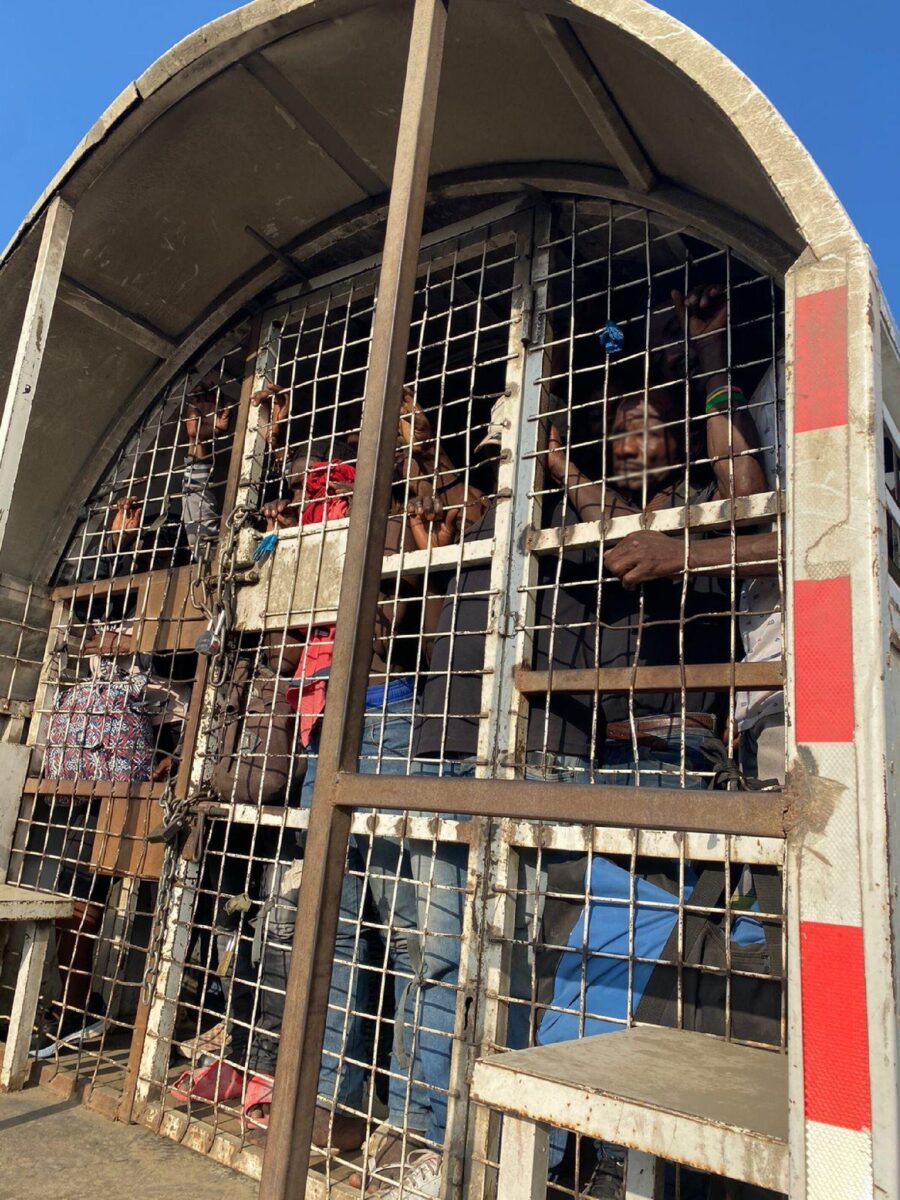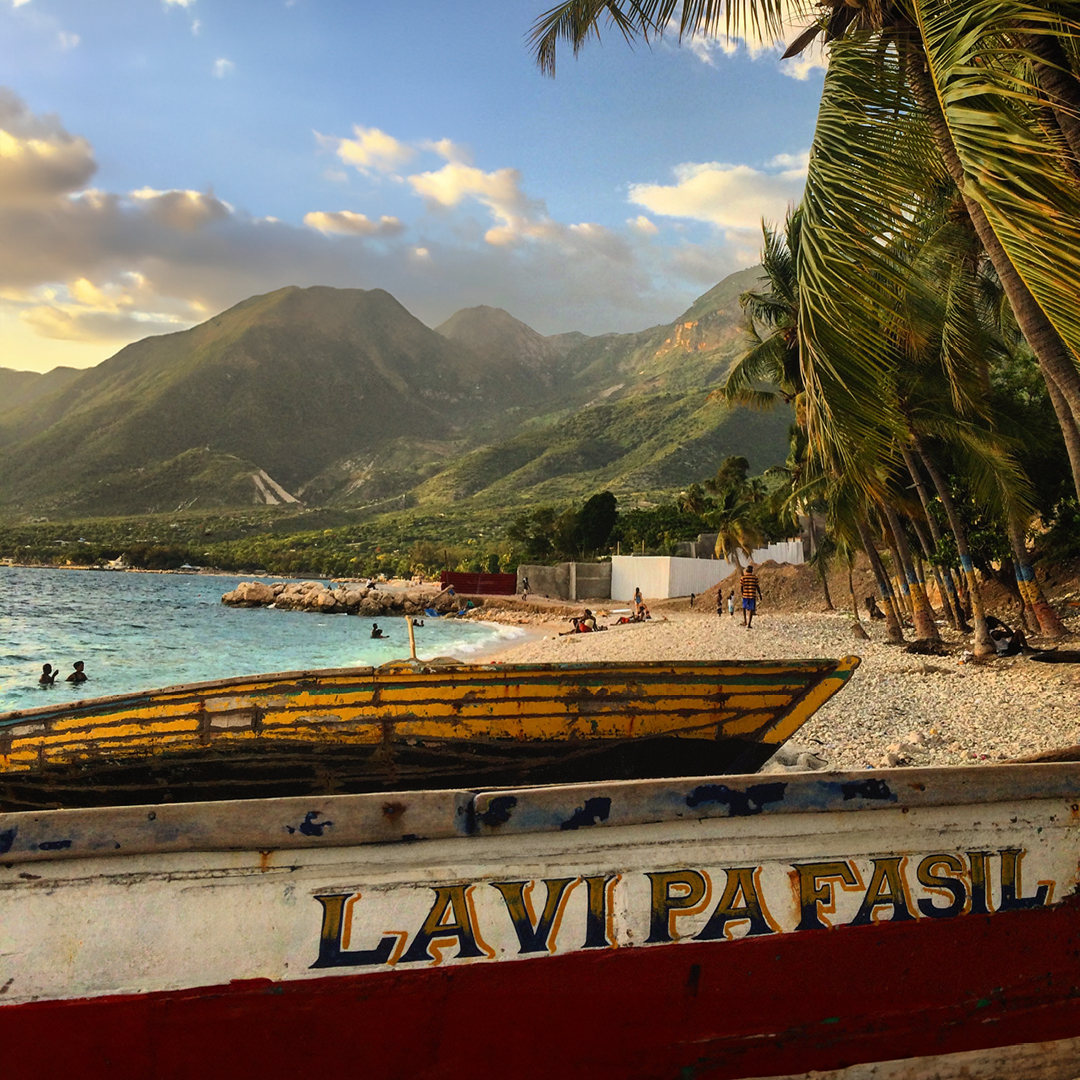HUMAN RIGHTS MOVEMENT
Racial Profiling & Mass Deportations
Rights Abuses of People of Haitian Descent in the Dominican Republic
This brief, published by the Global Justice Clinic, presents the human rights violations–including arbitrary detention, family separation, and racial profiling–that Haitian migrants and Dominicans of Haitian descent in the Dominican Republic face, and that have become more frequent and severe since late 2024.
Este informe publicado por la Clínica de Justicia Global, presenta las violaciones de los derechos humanos —incluídas, la detención arbitraria, la separación familiar y la discriminación racial— que sufren los migrantes haitianos y los dominicanos de ascendencia haitiana en la República Dominicana, y que se han vuelto más frecuentes y graves desde finales de 2024.

The Global Justice Clinic authored the brief in consultation with several Dominican and Haitian organizations that advocate for the rights of people of Haitian descent. The brief sheds light on the increased human rights violations that Haitian migrants and Dominicans of Haitian descent in the Dominican Republic (D.R.) face since the Dominican government announced a new deportation policy in October of 2024 that aimed to deport up to 10,000 people per week. As the image above shows, the Dominican government is rounding people up and putting them in cage-like trucks to transport them to the border. Haitian migrants and Dominicans of Haitian descent are living in terror. Instances of arbitrary detention and collective expulsions, family separation, and violence and inhumane treatment are increasing, and racial profiling is widespread. The brief highlights the policy’s significant impact on vulnerable groups, particularly children, pregnant and nursing women, and human rights defenders.
The brief concludes with recommendations proposed by the Global Justice Clinic’s D.R. and Haiti-based partners, including:
- ending the deportation quota,
- ceasing to deport unaccompanied children,
- practicing nondiscrimination in detention and deportation, ceasing to profile people based on perceived race and nationality, and
- expanding pathways for migrant workers and their families to regularize their status.
Although the brief’s recommendations primarily target Dominican authorities, all governments in the regions, international institutions, and civil society organizations must call for the Dominican government to respect human rights.
- Nowhere to Belong: Inside the Dominican Republic’s Crackdown on Haitians, Al Jazeera Fault Lines Documentary, featuring Gabrielle Apollon, Director of the Haitian Immigrant Rights Project of the Global Justice Clinic, May 28, 2025
- REDMA Condemns the Dominican Republic’s State-sanctioned Cruelty and Terror Masked as Immigration Policy: Statement from the Hemispheric Network for Haitian Migrants’ Rights on May 20, 2025 (Spanish, Kreyol)
- Video: Statement by the Hemispheric Network for Haitian Migrants’ Rights at the Fourth session of the UN Permanent Forum on People of African Descent (1:34:00), delivered on April 17, 2025
- Video recording of a webinar the Global Justice Clinic hosted on December 10, 2024, entitled, “Racial Profiling & Mass Deportations: Perspectives from the Dominican Republic & Haiti,” featuring Network members based in the D.R. and Haiti.
The Haitian Immigrant Rights Project (HIRP) is part of the Global Justice Clinic at NYU School of Law. HIRP coordinates the Hemispheric Network for Haitian Migrants’ Rights, a transnational coalition of Haitian migrant rights’ leaders and Haitian-led organizations based in 14 countries throughout the Western Hemisphere. A number of the Dominican and Haitian organizations that the Clinic worked with to produce this brief are Network members.
This post reflects the work of the Global Justice Clinic and not necessarily the views of NYU, NYU Law, or the Center for Human Rights and Global Justice.





